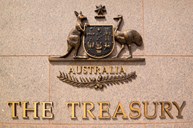A fringe benefit is a non-cash benefit provided to an employee. Fringe Benefits Tax (FBT) was introduced in order to ensure tax was paid on these non-cash benefits. It is the employer who pays the FBT, but ultimately will take any FBT liability into consideration when providing benefits to an employee and determining the cash component of their salary and wages.
When an employer provides taxable fringe benefits to an employee, they will pay FBT on the grossed-up value of the beneift. This value reflects the gross salary employees would have to earn at the highest marginal tax rate (including Medicare levy) to buy the benefits after paying tax. FBT is then paid by the employer at the top marginal tax rate plus medicare. As such, there is no benefit to receiving non-cash benefits unless those benefits are exempt from FBT or concessionally taxed under the FBT regime.
The grossed up value of the benefit will be shown on the income statement as a Reportable Fringe Beneift Amount (RFBA) and will be taken into consideration for certain income tests (such as for liability for the medicare levy surcharge, Private Health Insurance Tax Offset, compulsory Study and Training Loan Repayments), but the employee is not liable for tax on these amounts.
Some types of organisations are either exempt from paying FBT or entitled to a rebate on the FBT they pay. These organisations are able to provide employees with non-cash benefits without having to pay FBT, making this component of their earnings tax free.
There is a cap on the amount of concessionally taxed fringe benefits these employers can provide to their employees, as follows:
- FBT-rebatable employers (e.g., certain societies, associations or clubs) are subject to a $30,000 cap on the amount of fringe benefits (which are eligible for an FBT rebate) they can provide to each of their employees.
- Public benevolent institutions and health promotion charities are subject to a $30,000 cap on the amount of FBT-exempt benefits they can provide to each of their employees.
- Public and non-profit hospitals, and ambulance services, are subject to a $17,000 cap on the amount of FBT-exempt benefits they can provide to each of their employees.
For employees who work for a not-for-profit employer, a separate grossed up cap of $5,000 applies for salary packaged meal and other entertainment benefits.
The following types of salary packaged entertainment are subject to this cap:
-
Entertainment by way of food and drink
-
Accommodation or travel in connection with, or to facilitate the provision of, such entertainment
-
Entertainment facility leasing facilities
Salary packaged entertainment is now included in the capping thresholds. However if these capping thresholds are exceeded in a particular year, the threshold is raised by the lesser of
-
$5,000 and
-
The total grossed up value of the salary packaged entertainment benefits.
This means that employees who work for not-for-profit organisations can receive entertainment benefits worth between $2,403.62 and $2,649.99 (depending on whether their employer is entitled to GST credits) in addition to their other fringe benefits.




.png?width=55&height=48&ext=.png)
-1.svg)

